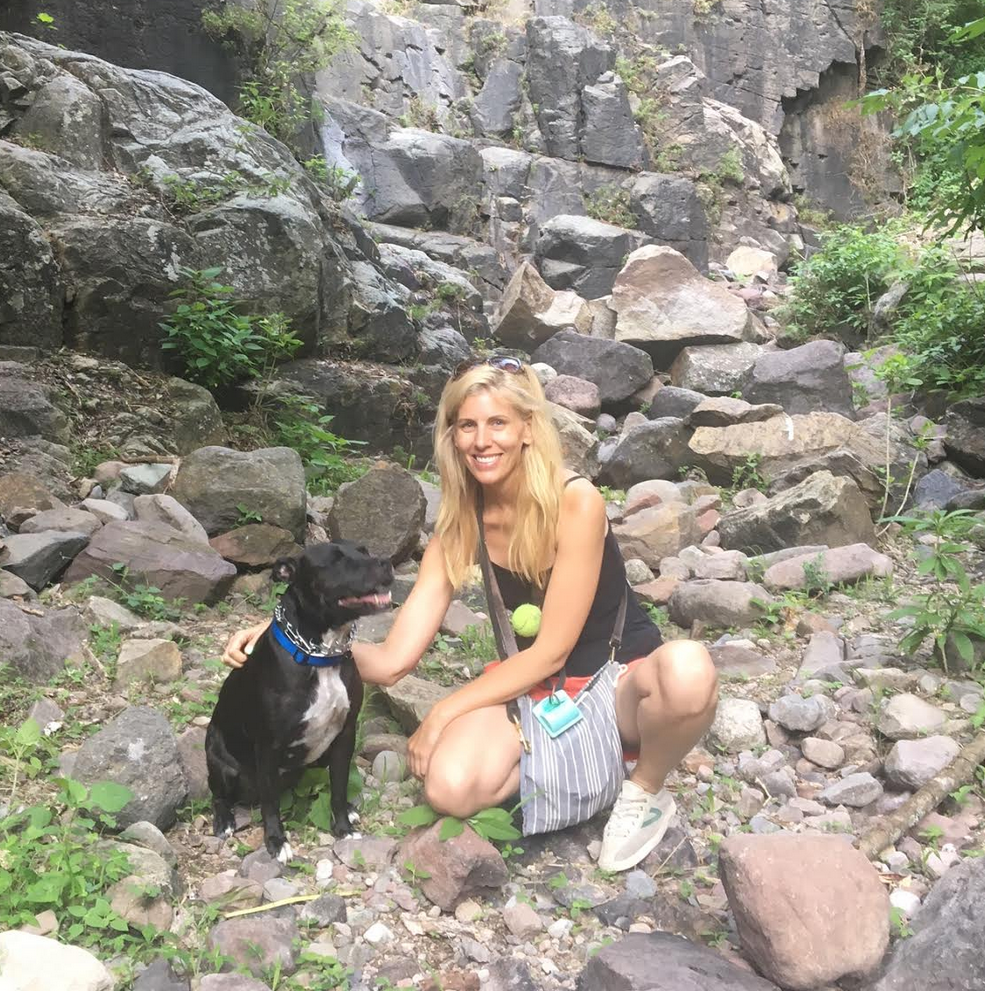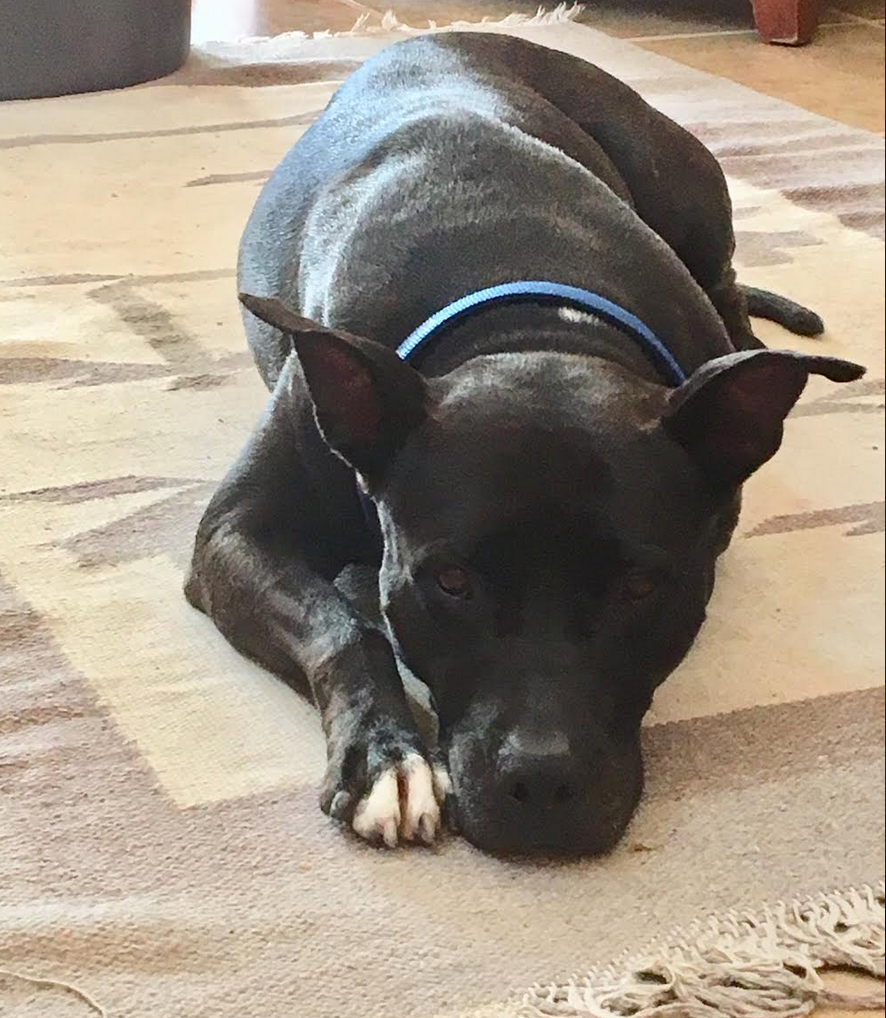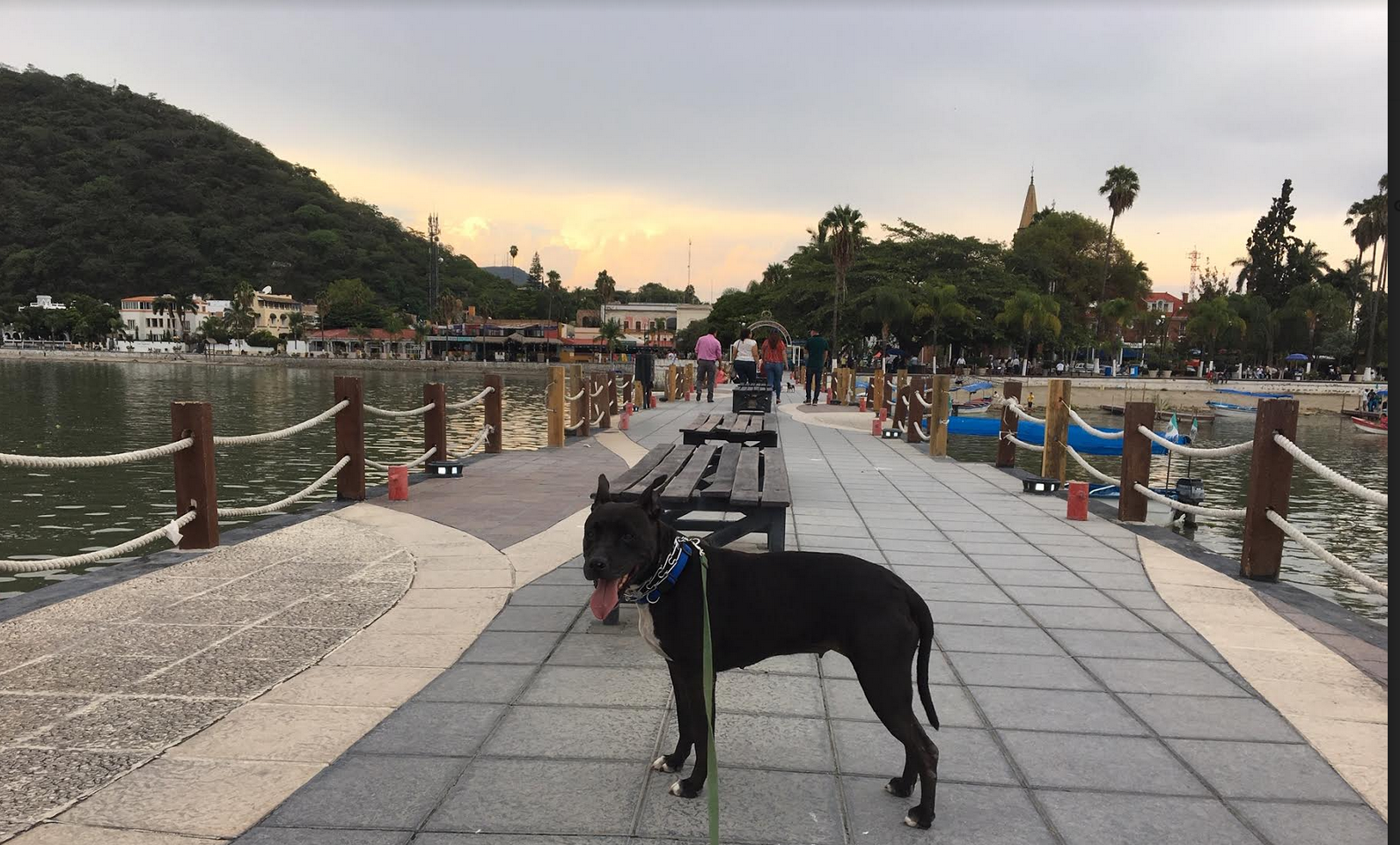Elizabeth Irwin
New York | Resident in 2015
Elizabeth Irwin is a playwright, screenwriter, and teacher based in New York City. She has come to 360 Xochi Quetzal each summer for the last three years to work on a specific project. Last year she came with her sidekick Sinatra. There are a lot of nuggets here for aspiring writers. Enjoy the interview.
Elizabeth hiking to the Ajijic waterfall
You have been to Chapala three times as part of the 360 Xochi Quetzal personal residency program. What keeps you coming back?
I find Chapala to be a wonderful, typical Mexican town. It’s not overrun by tourists. It’s lively but quiet. The food is wonderful and inexpensive. The people are friendly and it’s just really nice to be able to shop at the weekly open air markets, walk by the lake, enjoy traditional food and practice my Spanish while still having hours every day to devote to my writing. I also find Cobra and her husband to be excellent hosts and have very much enjoyed getting to know them.
What benefits have you derived from the residencies?
Having time and space away from my typical obligations in New York is vital. Having the luxury of simply being. Creating the rhythm of my own days. Taking advantage of what Chapala has to offer on some days and staying quiet on others, taking it all in from the rooftop as I look at the mountains and the sky.
Sinatra waiting patiently for a walk
How has each residency been different for you?
As I get to know the town better, I find my own little secret delights and then return to the ones I love. This past year I brought my dog and she pulled me (literally) off in new directions too including an excellent juice stand, far from the center of town so I have to thank her for that!.
Elizabeth hiking to the Ajijic waterfall
What are you currently working on?
I am working on a TV pilot about sex workers advocating for their rights as well as rewriting a TV pilot about a public school teacher coach. I’m also working on a play about a group of women in a domestic violence support group.
What are some highlights of this residency program for you? How can we make this program better?
The highlight for me is the very open nature of the residency. It’s as isolated or social as you want. It’s as low key or intense as you desire. I wouldn’t change anything!
What other residencies have you attended and how does 360 Xochi Quetzal compare?
Most of the other residences I’ve attended (Space on Ryder Farm, Omega Institute, Primary Stages at Bennington College, Playwrights Realm Alumni Retreat) are more group focused which is nice. It creates a sense of camaraderie. But this feeds the other part of my personality that just wants to do her own little thing and not speak to anyone until after noon.
Sinatra waiting patiently for a walk
Tell us about who you are as a writer and the trajectory of your career.
I’m a playwright who is branching out into TV writing and memoir writing. I’m concerned with social justice issues and how the personal and political don’t just intersect but lie in bed with each other all day everyday. I started off writing pretty straightforward naturalistic plays but recently felt more comfortable playing around with form. I like the idea of having art imitate life. Yes, our lives progress in this straightforward naturalistic way in one sense. But when you account for our rich inner lives and how they live alongside our day to day, you see how a true accounting of life can encompass both of those.
Walking Sinatra on the Chapala Malecon
What productions are in the works for you in the coming year?
I’m a member of the Primary Stages Dorothy Strelsin New American Writers Group and we have a reading series every spring in which we showcase what we worked on throughout the year. That is my current focus – figuring out how to work with heart and a clear vision on my piece this year.
How do you support yourself as a writer?
I began my career as a teacher so I still do a lot of work in the education field – part-time teaching, consulting for education nonprofits, training teachers. I make some money from writing, too.
What advice do you have for writers who are starting out?
Learn your own unique process for writing and rewriting and then accept it and work within it. Don’t beat yourself up because your process isn’t like someone else’s or how you think it should be. I had to learn that the first time I hear criticism I hate it and think it’s stupid. Usually after I go home, take a walk, or a bath, I can actually hear what was said and then consider it for rewrites. That’s just how I am and I share this with my collaborators so they understand my reactions. I also know that I write best I focus on small chunks and that I need a lot of support around structure. Therefore I make my schedule like that and I invest in getting the support I need. Figure out what works for you and then don’t fight it.




